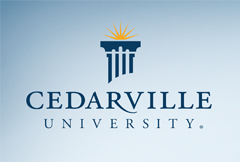Keywords
End of life, ethics, hospice, advance directives
Abstract
It has been said, “Everybody will die, but very few people want to be reminded of that fact” (Handler, 2000, p.28). Perhaps this is the reason so few adults have advanced directives. Even after the 2005 public debate over the Terry Schiavo case, it has been calculated that two-thirds of Americans adults have not completed advance directives (Morhaim & Pollack, 2013).
Americans are united in desiring that their wishes be honored. Sister Nancy, a senior Catholic Nun, had completed her living will. After a medical episode and hospitalization she was furious that hospital emergency physicians had not honored her advanced directives. Yes, her life was saved; but the sacred trust of patient and physician was broken. It is this sacred trust we all count on.
This paper will provide an ethical overview of advance directives, hospital care, hospice services, and physician roles and essential responsibilities. It will include socially responsible parameters for patient autonomy. Finally, it will affirm biblical influence and advocacy in maintaining ethical care at the end of life.
DOI
10.15385/jce.2014.13.2.3
Recommended Citation
Kehr, Thomas
(2014)
"End of Life Ethics: Hospice and Advance Directives,"
CedarEthics: A Journal of Critical Thinking in Bioethics: Vol. 13:
No.
2, Article 3.
DOI: 10.15385/jce.2014.13.2.3
Available at:
https://digitalcommons.cedarville.edu/cedarethics/vol13/iss2/3
Creative Commons License

This work is licensed under a Creative Commons Attribution-Noncommercial-No Derivative Works 4.0 License.
Disclaimer
The CedarCommons repository provides a publication platform for fully open access journals, which means that all articles are available on the Internet to all users immediately upon publication. However, the opinions and sentiments expressed by the authors of articles published in our journals do not necessarily indicate the endorsement or reflect the views of Digital Services, the Centennial Library, or Cedarville University and its employees. The authors are solely responsible for the content of their work. Please address questions to the Digital Services staff.
Copyright
© 2014 Thomas Kehr. All rights reserved.
